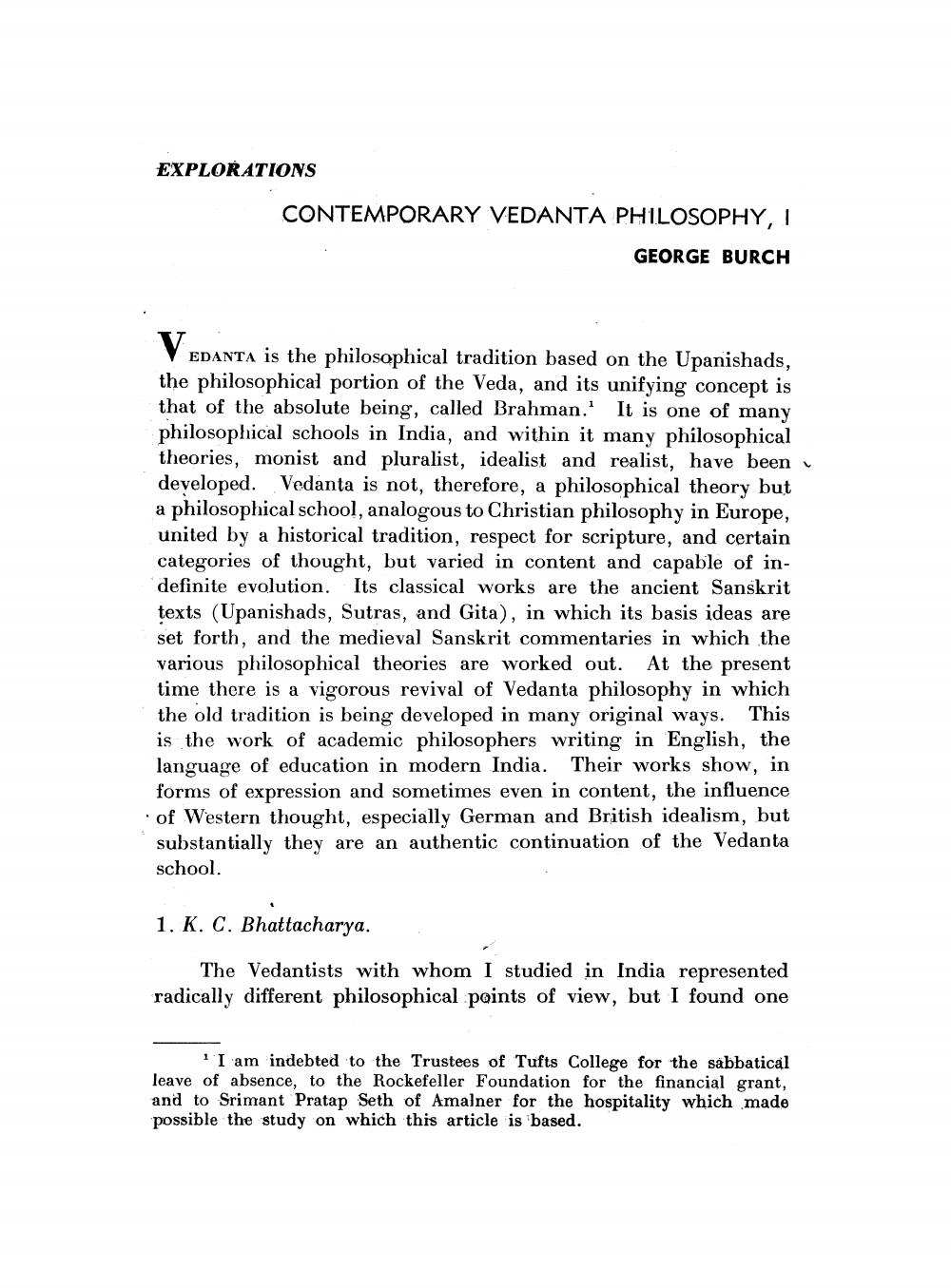Book Title: Contemporary Vedanta Philosophy 01 Author(s): George Burch Publisher: George Burch View full book textPage 1
________________ EXPLORATIONS CONTEMPORARY VEDANTA PHILOSOPHY, I GEORGE BURCH VEDANTA is the philosophical tradition based on the Upanishads, the philosophical portion of the Veda, and its unifying concept is that of the absolute being, called Brahman. It is one of many philosophical schools in India, and within it many philosophical theories, monist and pluralist, idealist and realist, have been developed. Vedanta is not, therefore, a philosophical theory but a philosophical school, analogous to Christian philosophy in Europe, united by a historical tradition, respect for scripture, and certain categories of thought, but varied in content and capable of indefinite evolution. Its classical works are the ancient Sanskrit texts (Upanishads, Sutras, and Gita), in which its basis ideas are set forth, and the medieval Sanskrit commentaries in which the various philosophical theories are worked out. At the present time there is a vigorous revival of Vedanta philosophy in which the old tradition is being developed in many original ways. This is the work of academic philosophers writing in English, the language of education in modern India. Their works show, in forms of expression and sometimes even in content, the influence of Western thought, especially German and British idealism, but substantially they are an authentic continuation of the Vedanta school. 1. K. C. Bhattacharya. The Vedantists with whom I studied in India represented radically different philosophical points of view, but I found one I am indebted to the Trustees of Tufts College for the sabbatical leave of absence, to the Rockefeller Foundation for the financial grant, and to Srimant Pratap Seth of Amalner for the hospitality which made possible the study on which this article is based.Page Navigation
1 2 3 4 5 6 7 8 9 10 11 12 ... 20
